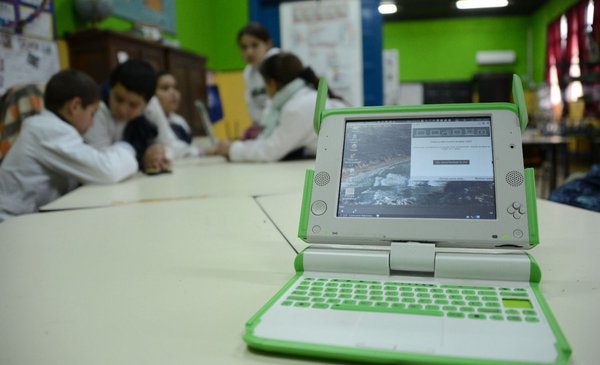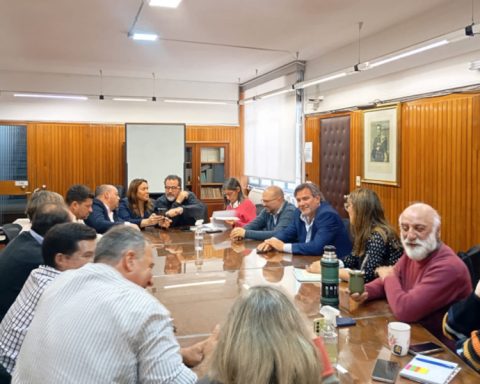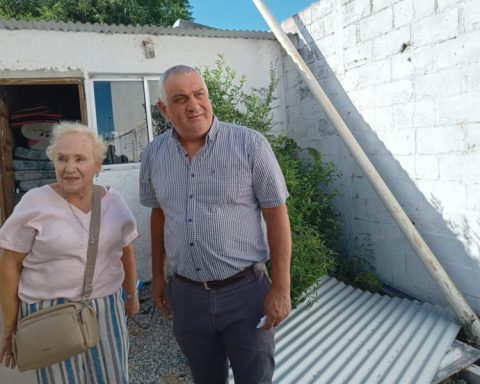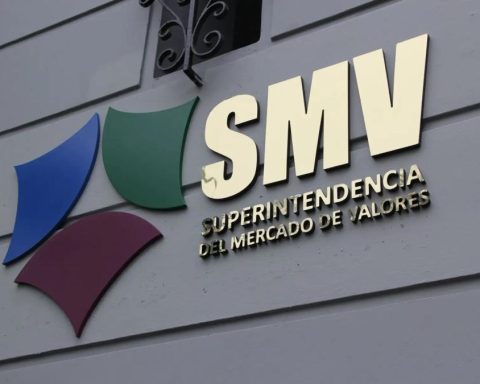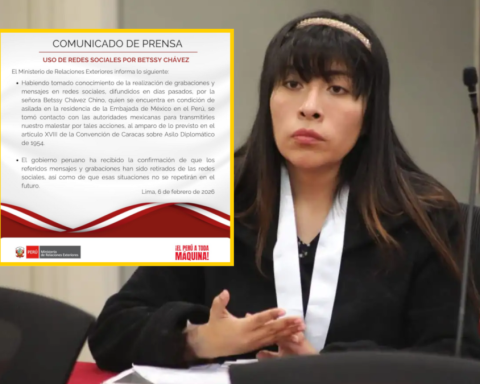The occupations and mobilizations that organized students and teachers have carried out in recent weeks have put the educational reform promoted by the government – and that the unions reject – at the center of the political debate and generated a discussion about Plan Ceibal and who supported it or not. From the beginning.
The focus of the debate turned to the program promoted in the first government of the Broad Front when the Minister of Education, Pablo da Silveira, assured that “It is not true that educational changes that do not have the support of teachers fail” and, by way of example, pointed to the Ceibal.
“It was born with the radical opposition of the unions”, who “had a close relationship with the governments of the time,” he said on Informal Breakfasts (Channel 12). “Not only did they radically oppose… Until today it is difficult to hear them praise Ceibal very much,” the minister added. Thus, he highlighted that reform “became a success story”.
In response, the Frente Amplio senator Sebastián Sabini refuted that Da Silveira “lies” with those statements. “The teachers’ union supported the Ceibal process,” he told Radio 970 Universal and added that the National Federation of Secondary School Teachers (Fenapes) supported it when the Ceibalite computers were implemented in Secondary School.
The minister then tweeted “Let everyone draw their own conclusions” and attached to the text published screenshots of some journalistic notes from when Plan Ceibal was promoted, which pointed out the teacher’s rejection of the initiative.
Sabini argued that the minister “does not distinguish” between the Technical Teaching Assemblies (ATD) and the Uruguayan Federation of Primary Education Workers (FUM-TEP) and “draws conclusions.” “He doesn’t even know what I said and answers anything”the opposition senator tweeted.
Thus, he sent the hierarch “to study” and left him “materials”: he shared screenshots of the Ceibal Project report prepared in 2008 by a representative of the FUM-TEP. “It is not true that all education teachers opposed andmaking that argument to want to impose an educational reform is quite mediocre”Sabini maintained, while adding that “it would be better to defend her for her supposed benefits.”
Does not differentiate between
ATD (Technical Teacher Assemblies) and the FUM TEP (Uruguayan Federation of Primary Education Teachers) and draw conclusions, they don’t even know what I said and answer anything. go study minister @pdasilve I leave you materials. https://t.co/Xv4R7oir59 pic.twitter.com/qIm8fr5wQf– Sebastian Sabini (@tatisabini) August 31, 2022
The discussion deepened, since the minister later justified that “the union gaze is still hostile” to Ceibal defending his opinion with a document from the International Federation of Education Unions in Latin America (IEAL). Both Fenapes and FUM-TEP make up this body, which in 2020 prepared the report Educational policy in Uruguay. Experiments and business alliances to profit from the right to educationwhich according to Da Silveira “not only attacks Ceibal but also INEEd”, referring to the National Institute for Educational Evaluation.
The trade union gaze remains hostile to Ceibal to this day. Anyone who wants to verify it can read this document from 2020, which not only attacks Ceibal but also Ineed. Education International Latin America is a federation of trade unions. Fenapes and Fumtep are members. pic.twitter.com/7jEeh7V9pk
– Pablo da Silveira (@pdasilve) August 31, 2022
But even Da Silveira himself, who today recognizes the program as a “success story,” questioned the cost of Plan Ceibal at the time. When the plan was 10 years old, in 2017, he published an opinion column in El País entitled The cost of Ceibal.
In that text, the minister referred to the cost that this initiative meant, which in its first decade was around US$ 500 million; thus, the then advisor to Luis Lacalle Pou relativized that with that amount “we could have built and equipped more than 200 full-time schools throughout the country.”
“In light of these figures,” continues the column by today’s minister, “it would have been good if the decision to embark on the execution of Plan Ceibal had been preceded by careful strategic reflection. Is it better for the country to spend 500 million in to execute this Plan or to build more than 200 full-time schools? Which of these two paths would lead to more valuable results for students and more sustainable over time?
The view of the teachers
In any case, it was when Da Silveira mentioned the document from the union federation that the teachers got into the discussion.
Fenapes responded to the minister’s tweet and said that he “hates organized teachers to lead an education reform.”
To have “no relevance in educational life” because we have “few followers on twitter”, @pdasilve He spends a lot of his time with us.
There is nothing like a minister of education who hates organized teachers to lead an education reform. It will be a success! https://t.co/0RCHX4S0n0– ⭕️Fenapes (@FenapesUruguay) August 31, 2022
For his part, the general secretary of that union, Emiliano Mandacen, urged the chief to “publish all the material if he has it,” which “would be more serious.” “Uruguay as a laboratory of educational policies digitized from abroad,” insisted the leader.
That last comment caught the attention of the head of the Ministry of Education (MEC), but Mandacen later corrected him: “I said Uruguay as a laboratory, what you call [Ceibal e INEEd] They can be instruments. Thus, he asked Da Silveira again to publish the entire document that the chief had mentioned, and the trade unionist clarified that “it is in the process of analysis”, so it had not yet been officially published. In this study “a serious analysis is carried out” on Ceibal and INEEd, he said.
Reading comprehension Minister @pdasilve I said Uruguay as a laboratory, what you name can be instruments. He publicly asked you to publish the entire document, which is also in the process of being analyzed, which is why we haven’t officially published it yet. https://t.co/W05kUlyYQQ
– Emiliano Mandacen (@emiliano1848) August 31, 2022
Da Silveira finally shared the file, which, according to him, “has been posted for a year in a free access regime.” According to the chief, the two “experiments for profit” to which the document refers are Ceibal and INEEd, respectively.
In this way, the 113-page publication “offers an analysis of educational public policy.”
In this sense, the document maintains that the Urgent Consideration Law (LUC), not approved at the time of writing, “reinforces the roles of non-state actors in educational policy such as the Ceibal Center (Foundation) and the National Institute of Educational Evaluation (INEEd)”. This report demonstrates how both actors “play in favor of weakening public education and in favor of private participation in education”.
One of the main criticisms leveled at INEEd is its position on the decentralization it promotes for education, which is in line with the positions of the Inter-American Development Bank (IDB) and the Organization for Economic Cooperation and Development (OECD). ). Meanwhile, Ceibal is being judged for supporting —together with INEEd and the IDB— the creation of the Alliance for the Digitization of Education in Latin America (Adela), an initiative that “plans to promote a lobby in the region and in the sector of ICT evaluations and designs on the need to generate ‘specific guidelines for designing and implementing monitoring and evaluation processes for technology policies in education’”, reads the document, which in turn cites a report from the Ceiba Foundation.
The report can be accessed in its entirety below:
Educational Policy in Uruguay. Experiments and Business Alliances to Profit from the Right to Education… by The Observer on Scribd
